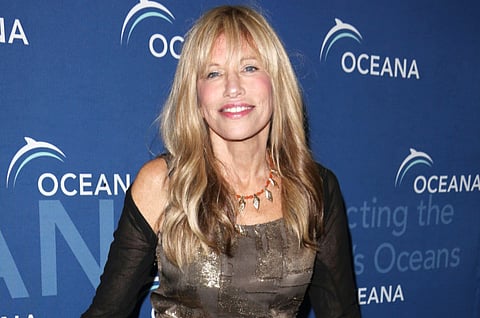Six tragic revelations about Carly Simon
So talented and so fragile, Simon deserved better than how she was treated in her memoir, ‘Boys in the Trees’

She was ignored by her father, sexually abused at seven and, even at her commercial peak, treated like a notch on the bedpost by more hit-makers than could fit on the Billboard charts. And James Taylor? The love of Carly Simon’s life gave her two children — and a decade of dysfunctional heartbreak.
Forget Mockingbird. Simon’s unofficial theme song should have been the old Nick Lowe tune, All Men are Liars. So talented and so fragile, Simon deserved better than how she was treated in Boys in the Trees, a memoir that arrives in stores on Tuesday.
Molested as a child
Billy was 16 and visiting from out of town. He told young Carly about a Swedish movie he’d seen featuring nudity. He urged her to go skinny dipping and then, in the pool house shower, told her she’d be “more comfortable on her knees.” Carly eventually told her mother. The result? Bill was sent away — for a month. “The biggest secret and vanity of the Simon family was to insist that nothing was wrong when, in fact, so much was wrong, and neither one of my parents owned up to it,” Simon writes.
A distant father
Richard L. Simon, the co-founder of Simon & Schuster, was a dark, lonely figure who channelled his depression into his intense renditions of Rachmaninoff. Marginalised at work, cheated on by his wife, Simon died before his daughter’s 16th birthday. But not before saddling her with the feelings of inadequacy that would define her later relationships. “After two daughters he’d been counting on a son, a male successor to be named Carl. When I was born, he and Mommy simply added a y to the word, like an accusing chromosome: Carly.”
Stuttering before singing
As a girl, Simon was getting ready to perform in a family production of Little Women when, suddenly, a stammer emerged. It worsened until, finally, at the dinner table she struggled to say “pass the butter.” Her mother made a suggestion. “Carly, darling — try singing it.” Her German speech therapist also had her sing through the stammer. Later, though, Simon’s anxiety on stage led to an early ‘80s breakdown during a concert in Pittsburgh and years off the road.
Warren Beatty, Kris Kristofferson and ... Michael Crichton?
That’s some list. Beatty, Kristofferson, Crichton, director Bob Rafelson, Rafelson’s brother Don, English playboy Willie Donaldson, Yardbirds bassist Paul Samwell-Smith, Jack Nicholson and future REM producer Scott Litt. Oh, and that doesn’t even include the many men named by Simon in the past, including actors John Travolta and Albert Finney and baseball star Keith Hernandez. Mick Jagger, usually listed as a former partner, is given a more vague status in Boys. Then there is the disturbing way Simon is disrespected by Albert Grossman (“Carly, when are you and I going to get it on”) as well as Marvin Gaye, who thrusts an unwelcome tongue into her mouth, and Redd Foxx, who drops his towel when she enters his dressing room. “What am I supposed to feel?” Simon writes. “I asked myself once I was back in the hallway? Was what I had seen attractive? Was it not attractive? Why was I always so split off?”
James Taylor, anything but sweet
James Taylor has documented his own youthful struggles (See: Fire & Rain), but Simon’s account of their marriage presents an even darker alternative to his PBS-polished image. She watches him tie off and shoot up early in their relationship, confronts his flophouse mistress near the end. Taylor grows cold, distant and unapproachable — echoes of her late father. And then there is Simon’s May 18, 1976, diary entry after an incident in Knoxville. “Maybe our marriage was too good. Maybe he just had to hurt me out of love. It was most probably simpler than that. Just drugs and the spirit of the occasion and the influence of loose southern [expletives]. Anyway, James announced to me yesterday that he had to get checked out for clap.”
Writing Anticipation for Cat Stevens
So this isn’t tragic, but it is a revelation. While Warren Beatty inspired the second verse of You’re So Vain, Cat Stevens motivated her to write her 1971 smash Anticipation. She had invited him over for dinner (chicken with cherries in a cream sauce) and he was late. By the time he had arrived, she had written the song. The pair were lovers, Simon writes, only for a short time. “He gave me whispers and drawings of Blake poems. He told me about his childhood, his mixed Greek and Swedish parents, and we made a connection that has lasted.”



